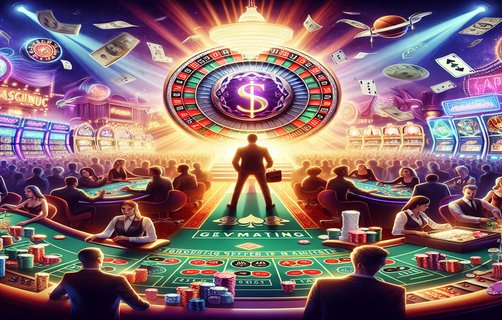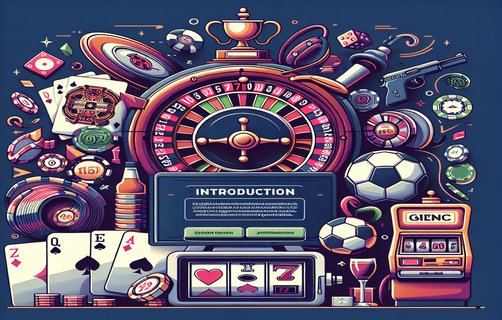Exploring the Evolving Landscape of Gambling: From Free Bets to Virtual Reality
In the ever-changing world of gambling, the advent of technology and shifting social dynamics are reshaping our engagement with various forms of gaming. With opportunities ranging from free bets to immersive virtual reality casinos, the landscape has become complex, offering new avenues for both enjoyment and ethical dilemmas.
The concept of free bets is particularly captivating, appealing to both novice and seasoned gamblers. These promotions, which allow players to wager without risking their own money, can be perceived as a gateway to the exhilarating world of gambling. While they undoubtedly serve as excellent marketing strategies for casinos, they also raise questions about habit formation and the role of incentives in fostering responsible gambling practices. Are these offers genuinely beneficial, or do they mask the underlying risks associated with gambling? The moral implications extend beyond the individual, reflecting a societal responsibility to educate gamblers about potential pitfalls.
Within this ecosystem, the voices of user reviews and experiences resonate profoundly. As individuals share their gambling journeys—whether triumphant or disastrous—the collective narrative builds a tapestry that highlights both the allure and hazards of gaming. It is through these accounts that one can discern the varying perspectives on casinos' impact on personal finances and mental health. While some users laud the thrilling experiences and social interactions, others reveal stories of addiction and loss, prompting a critical examination of how these establishments balance entertainment with ethical considerations.
The pandemic has dramatically influenced the gambling sector, thrusting traditional brick-and-mortar casinos into a digital renaissance. The enforced isolation and uncertainty led many to seek comfort in online gaming, accelerating trends that may have taken years to develop. However, this shift is not without consequences; it has intensified the debate surrounding the normalization of gambling in our daily lives. As people embrace these alternatives, we must grapple with the long-term effects on our culture and the psyche of consumers.

Moreover, the emergence of virtual reality casinos presents a fascinating yet contentious frontier. These digital realms promise an immersive experience, capturing the essence of land-based establishments—all from the comfort of home. Yet, this innovation begs the question: does virtual reality lessen the perceived danger of gambling, making it a more alluring option for risk-takers? With such technology, ethics must remain at the forefront of discussions surrounding regulation, user safety, and addiction prevention.
In addition to these technological advancements, gambling influencers have risen to prominence, wielding significant power over perceptions and behaviors. Their ability to impact decisions, particularly among younger audiences, generates ethical dilemmas regarding transparency, accountability, and the potential for exploitation. As influencers cultivate followings, it becomes paramount to interrogate their roles—are they educators, entertainers, or promoters of gambling culture?

Lastly, one cannot overlook the importance of understanding three-bet ranges among poker enthusiasts. This concept encapsulates strategy and behavioral analysis, revealing how players navigate risks within this game of chance. In doing so, an examination of decision-making processes unveils the intricate relationship between skill and luck, echoing larger themes regarding responsibility in gambling.
As we traverse this multifaceted landscape, we must embrace critical conversations about the moral dimensions of gambling. Understanding the interplay between opportunity and ethical responsibility is essential to fostering a healthier environment for all participants in this captivating arena.
